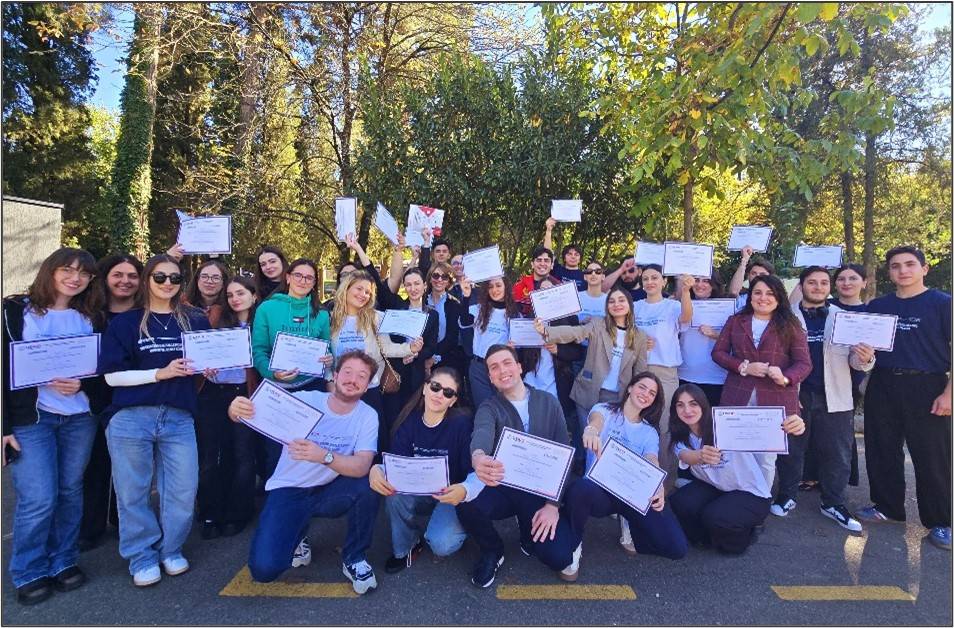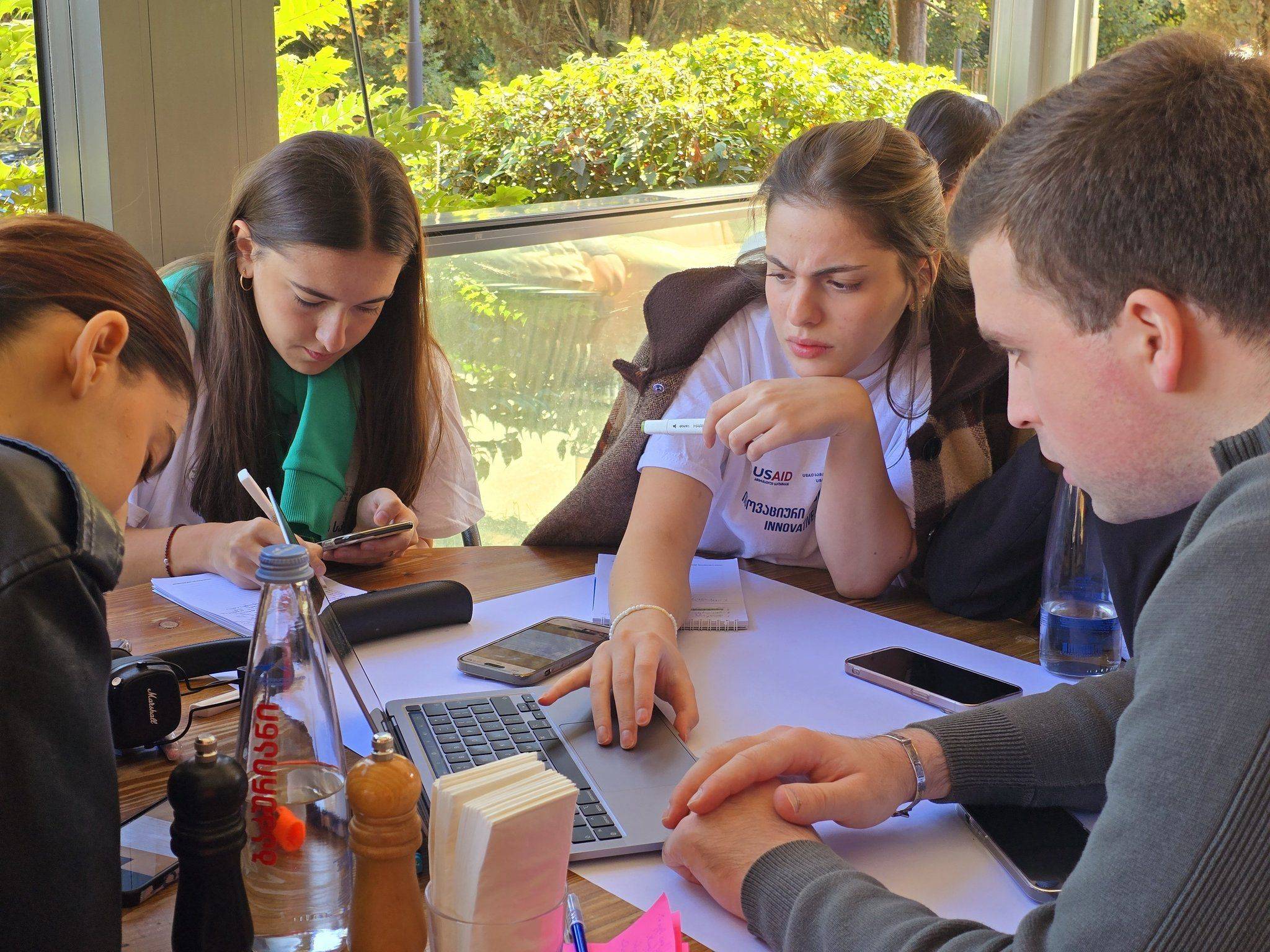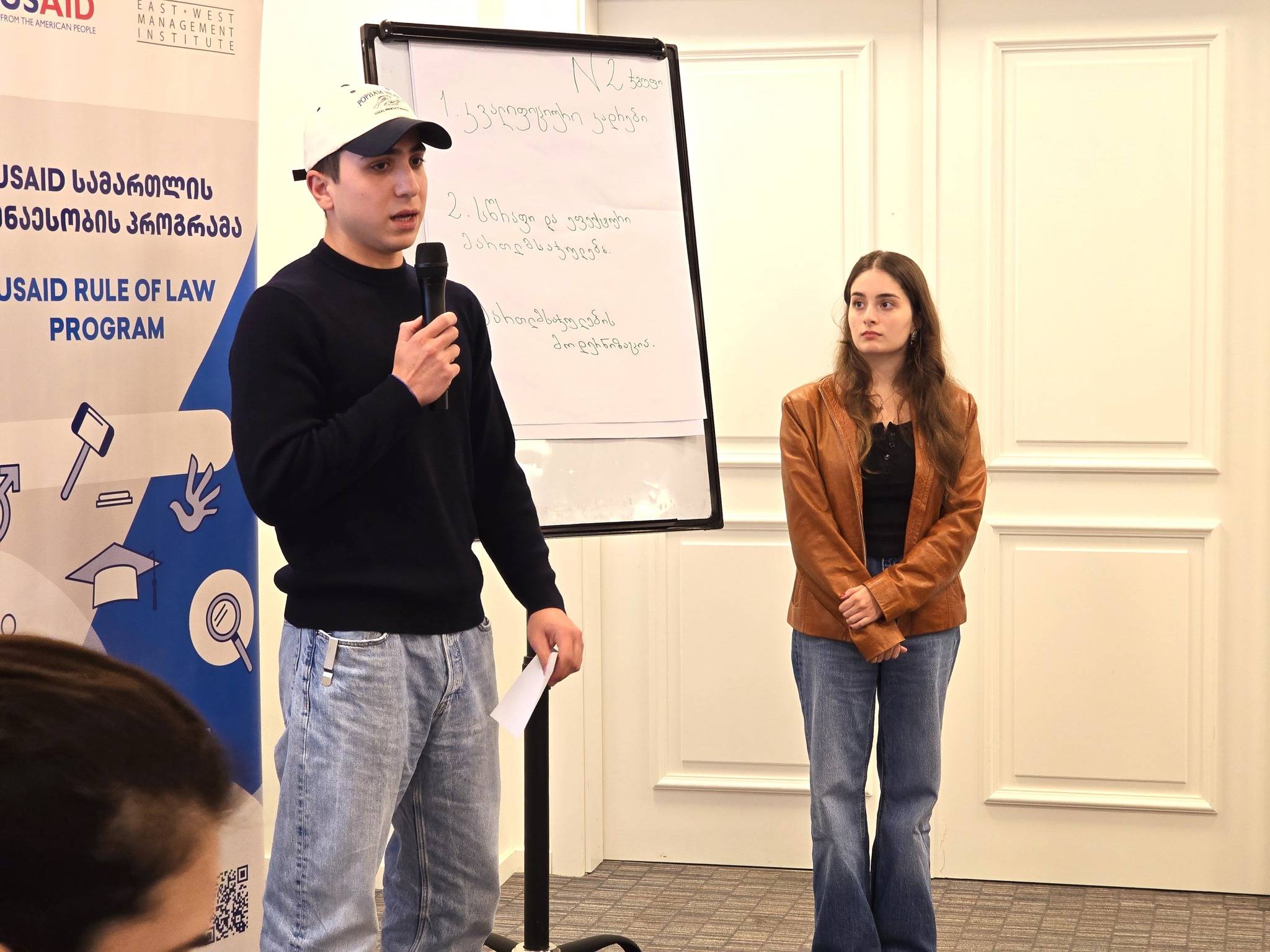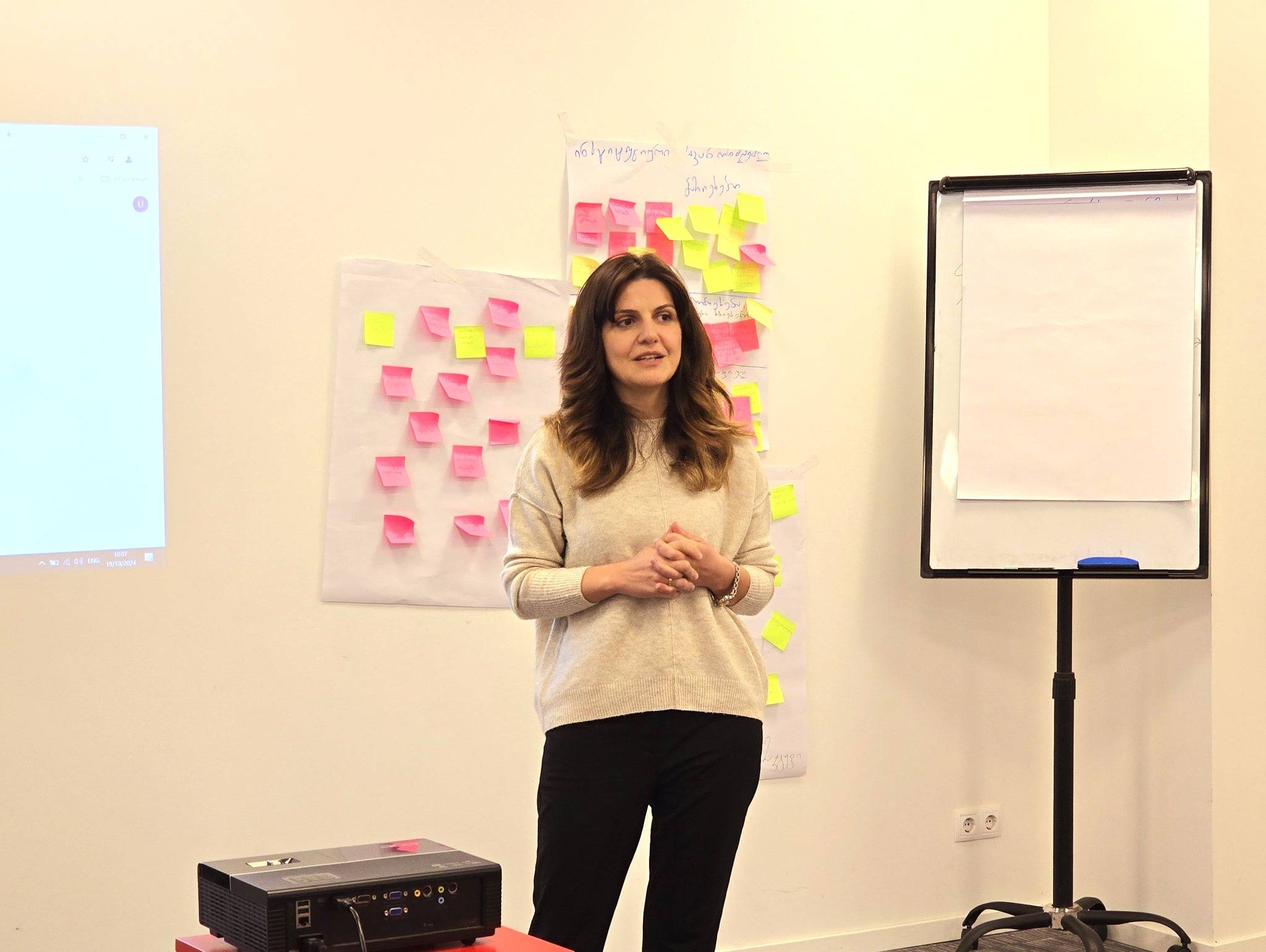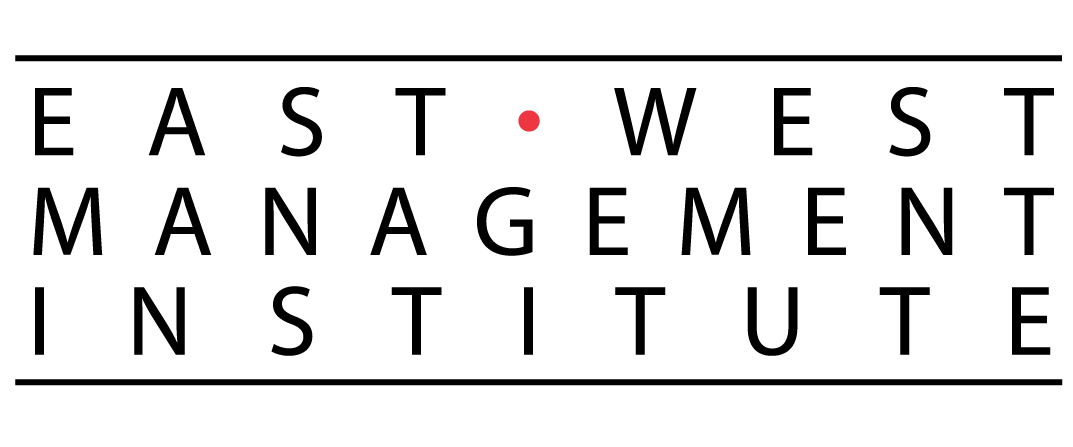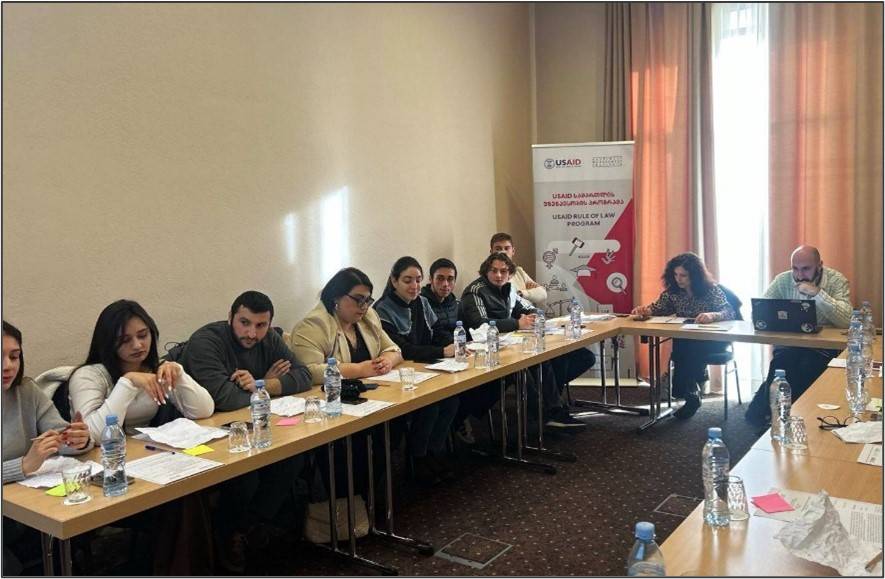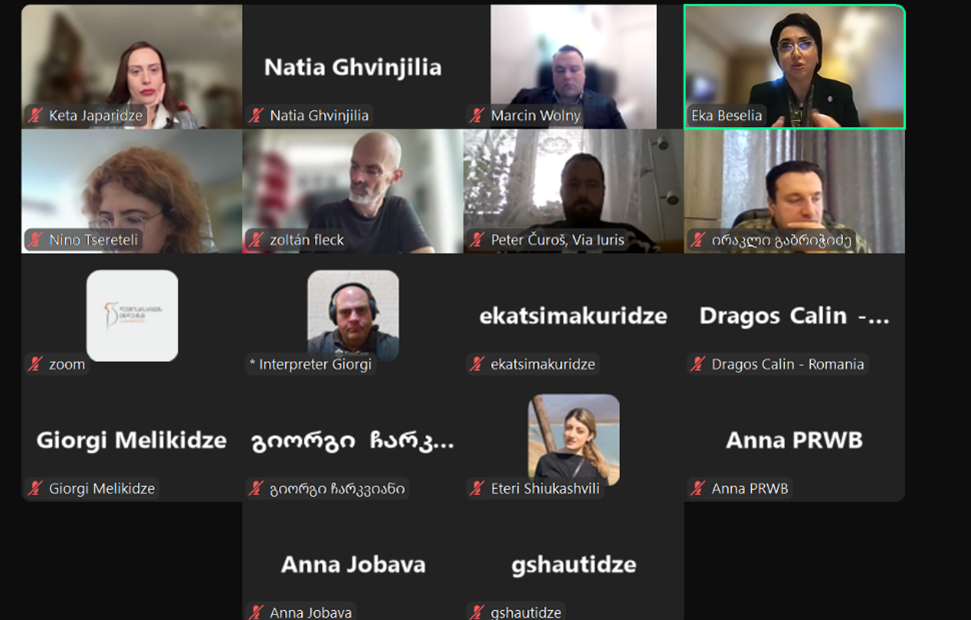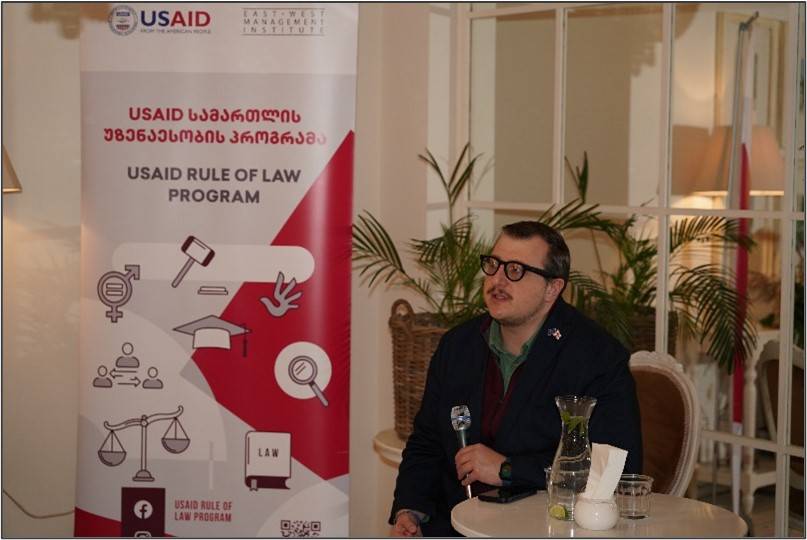University Students from Across Georgia Attend Innovative Justice School
For certain young people in Georgia, justice goes beyond courtrooms and verdicts. It is seen as a system that is accessible, efficient, and modern—one that adheres to the separation of powers, delivers affordable and swift justice for everyone, ensures qualified judges and personnel, offers free legal aid to vulnerable groups, and embraces the potential of modern technology. - This vision of justice was shared by the university students attending the USAID Rule of Law Program (“the Program”)’s “Innovative Justice School” which took place October 17-20, 2024. The School brought together 30 law students from universities across Georgia for an intensive four-day program designed to inspire and equip the next generation of legal professionals.
On the opening day, Giorgi Chkheidze, Chief of Party for the Program, explained the School's mission and the vital role its students will play in shaping Georgia’s justice system. Rusudan Tabatadze, Rule of Law Program Manager at USAID/Caucasus, reinforced USAID's commitment to supporting initiatives like the School, expressing confidence that the next generation will strengthen Georgia's justice system. She stated, "One of the United States' key aims has always been to support Georgia’s development as a strong, democratic state, so it can stand as an equal partner with America and other Western nations."
The courses began with a session on access to justice and people-centered justice. These sessions were followed by a discussion on the role of legal education in innovative justice, explaining how innovative teaching methods and legal frameworks can reshape the justice landscape. Attendees later convened for a session on alternative dispute resolution mechanisms. This session explored strategies for resolving disputes outside traditional court settings, emphasizing the advantages of mediation and arbitration in achieving more efficient and amicable resolutions.
Experts and speakers from Georgia and abroad, such as Danielle Pugh from the Center for Justice Innovation in the US and Mary Madden, former family court judge in Minnesota, and former Supreme Court Judge Nino Bakakuri, spoke on such topics as evidence-based justice practices, restorative justice, access to legal aid, and community engagement
The students also explored restorative justice with Guram Imnadze, an expert in criminal law and criminology, followed by a session on the intersection of civic engagement, European integration, and the justice system. With Georgia’s ongoing efforts to align itself more closely with European standards, sessions led by speakers Vano Chkhikvadze, an expert in European integration issues, and Giorgi Burjanadze, former Deputy Public Defender and an expert in constitutional law, explained how a strong and independent rule of law and civic engagement is essential for furthering this integration. The modernization of justice administration was another central theme explored by students, particularly the role of technology in streamlining legal processes. Ucha Bakhtadze, an expert in criminology and media law, led a discussion on how technology is transforming the legal profession, offering examples of digital tools that are already being used to make courts more efficient and accessible. This session opened up discussions about the potential of technology to improve access to justice, especially in rural and underserved areas, demonstrating the power of modern solutions to address long-standing challenges in the legal system.
Throughout the programming, participants were encouraged to think critically and work collaboratively, engaging in group projects, presentations, and interactive sessions that allowed them to apply the theoretical knowledge they gained. These activities aimed to not only broaden their perspectives but also give them practical tools to implement innovative ideas within the justice system.
